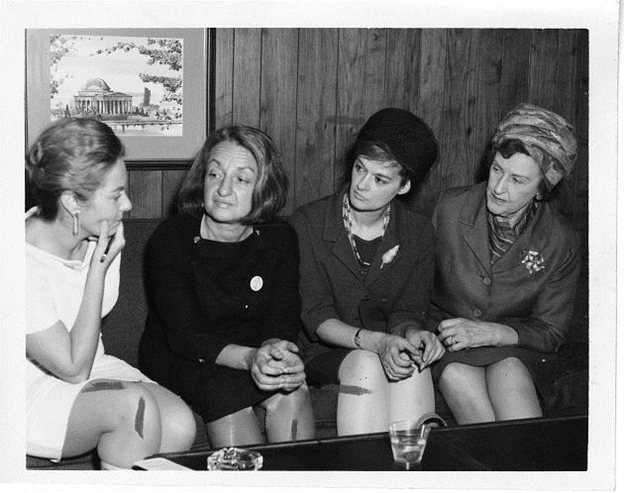1969: Students’ Increasing Support of the Second Wave of Feminism

The second wave of feminism had spread across the United States in the late 1960s. By 1969, the women’s liberation movement had gained momentum as well as the attention of the rest of the country. Feminists and women’s rights activists were working for change in multiple arenas across the nation, from education and working conditions to marital concerns and family planning.
Students were in the middle of the passion and intensity of the national campaign. Two items on the 1969 CIRP Freshman Survey gauged students’ convictions about women’s rights issues:
This bank of questions asked about the extent to which students agree with the following statements. Mark one in each row:
• Divorce laws should be liberalized
• Under some conditions, abortions should be legalized
Of the respondents, 41.6% indicated that they “somewhat” or “strongly” agreed that divorce laws should be liberalized. It is interesting to note that more men than women held this belief about marriage (46.5% of men, 35.2% of women).
Furthermore, 76.2% of all freshman respondents indicated that they “somewhat” or “strongly” agreed that under some conditions, abortions should be legalized. Again, more men (77.9%) than women (74.1%) held this belief about abortion. These perspectives occurred in the aftermath of the Abortion Speak-Outs conducted by the radical feminist group, Redstockings. These political demonstrations highlighted the fact that women’s voices were not included in the debate over abortion. Despite the representation of only women involved in the broader political movement to increase women’s rights, men were more likely to support legalized abortions in certain cases than women.
While these two questions only appeared on the Survey in 1969 and 1970, their inclusion reflects an important movement that was occurring on the political and social stage at the time.
Did you know…
23.1% of all entering freshmen indicated that the federal government should increase or initiate involvement to eliminate violence from T.V.
